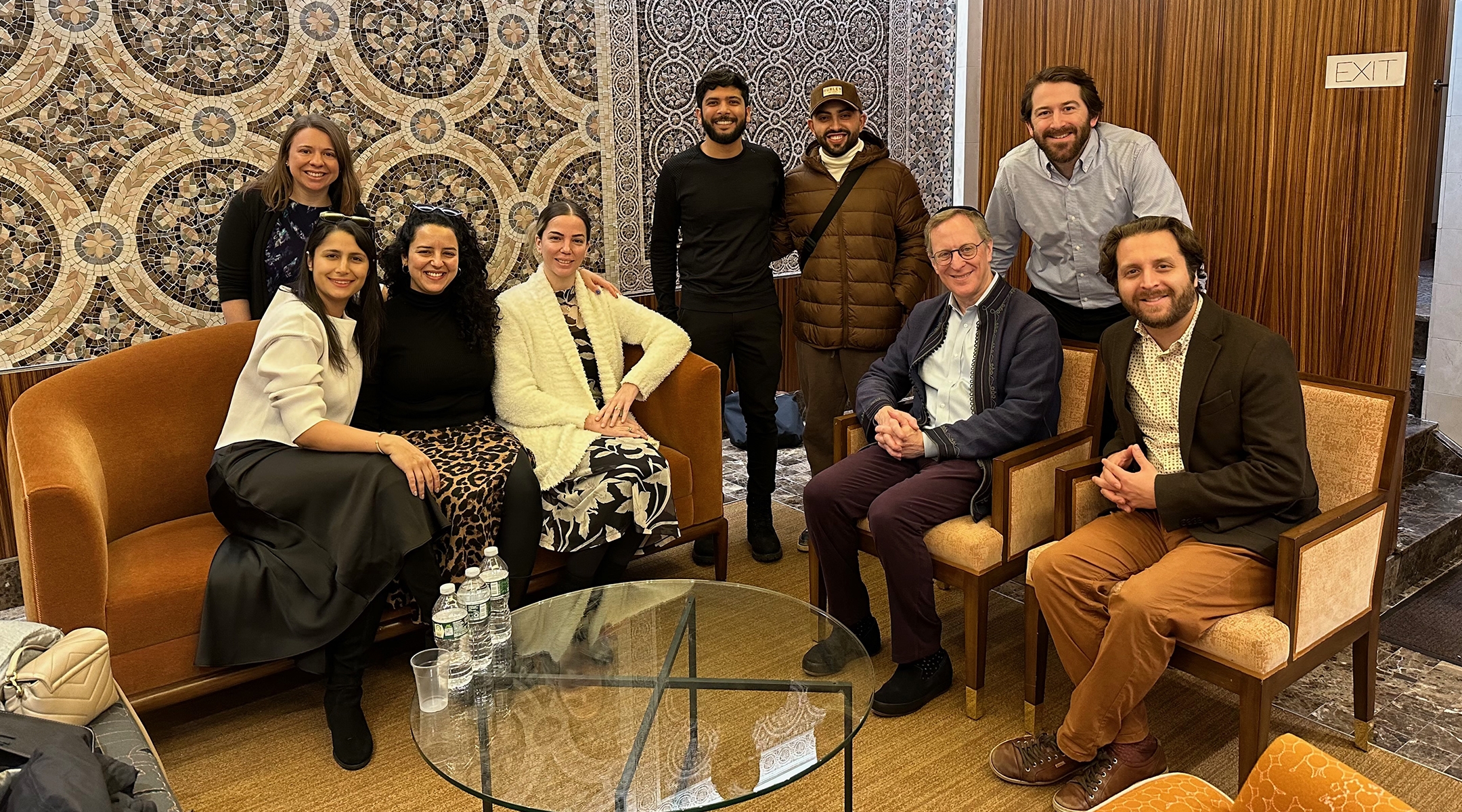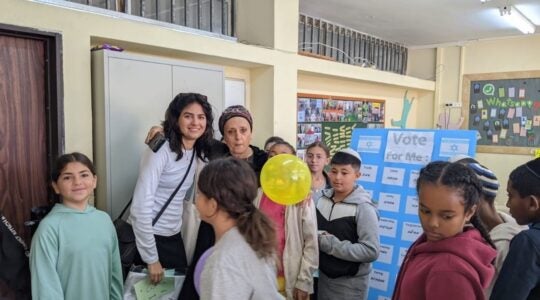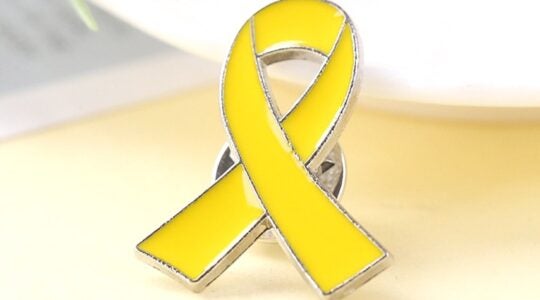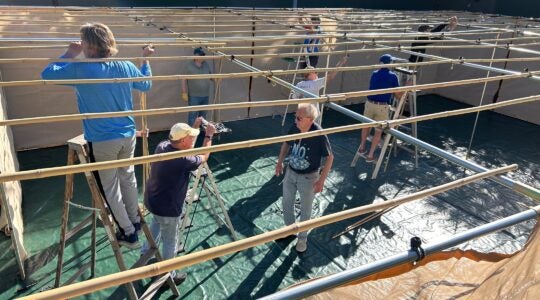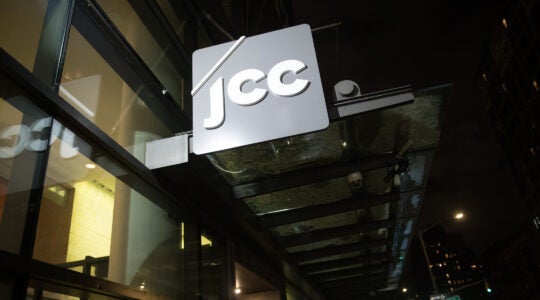(JTA) — Jasamine Hodge started converting to Judaism eight years ago, but it wasn’t until Oct. 7 that she set a date to finish.
As a child and teen, Hodge, 33, who lives in Kansas City, had grown up with families that practiced Christianity and Islam. When a friend introduced her to Judaism when she was 24, she realized she had found her “religious home.”
Over the years, she studied Judaism intensively, spent time in Israel and learned Hebrew. Yet because of complications in her life and community, including rabbinic turnover at her synagogue, she still was not officially Jewish last fall.
When Hamas struck Israel on Oct. 7, killing about 1,200 people and taking hundreds of hostages, she felt the gap in her identity acutely.
“When the attack happened, I just felt this urgency to be even more connected with God because I felt that every single prayer, with so many against us, was needed right now,” Hodge said. “As I continued to elevate my prayers and elevate my closeness to God, I realized that this was the time more than ever that I needed to push things to the finish line.”
Hodge is not the only person to experience a pull toward conversion after Oct. 7. Multiple rabbis told the Jewish Telegraphic Agency that they have seen a surge in interest from potential converts since the attack, both from people who were already in the process of converting and from people who had never before been in touch. The surge has taken place even as the attack and the ensuing war between Israel and Hamas have fueled antisemitic incidents around the world.
“It’s been nothing short of profound and personally inspiring as an educator, and invigorating as a spiritual leader, to see people in the face of such brazen hatred feel all the more called to step into their Judaism,” said Rabbi Avram Mlotek, who received Orthodox ordination and lives in New York City.
For those who were already Jewish on Oct. 7, there has also been a noticeable inclination to draw closer to those identities or to Israel. Some Israelis have reconnected with their faith since the war began, and a number of Jewish families that had been planning to move to Israel before October sped up their immigration process in response to the attacks.
With two other Orthodox-trained rabbis in New York City, Mlotek facilitates a 22-week online course and beit din, or three-member religious court, aimed at making Orthodox Jewish conversions accessible outside of the rigid process overseen by the Rabbinical Council of America, an umbrella Orthodox rabbinical association that coordinates its conversion process with that of the Israeli Chief Rabbinate.
Rabbi Adam Mintz, who leads a congregation in Manhattan and is part of Mlotek’s conversion initiative, said that in the weeks immediately following Oct. 7, he and his colleagues “have found an explosion of people who are interested in beginning to explore conversion.” He said he had been fielding three to five phone calls per week with people who were interested in pursuing conversion — a substantial increase over the typical rate.
In Los Angeles, meanwhile, the Miller Introduction to Judaism Program, which operates an online conversion course that many Conservative rabbis recommend to potential converts, experienced a 40% uptick in interest inquiries in the three months following Oct. 7.
“There was a noticeable increase,” said Benjamin Wright, the program’s associate director. He characterized the rise as “pretty sharp.”
Exactly what is driving the uptick is still coming into focus. In addition to people who are part of Jewish families seeking to formalize the way they feel, there are examples throughout history of people choosing to become Jewish after learning about Judaism or identifying with it because of a trauma to the Jewish people.
Most notably, thousands of Germans expressed a desire to convert to Judaism in the years after the Holocaust, with many saying they were overcome by their sense of “guilt and shame and shock” at the atrocities their country had committed, according to one historian. The interest was so high that in 1950 a special commission was formed to help Berlin’s top rabbi sift through the requests. In recent years, a debate has consumed some Jewish circles in Germany over whether there is such a thing as too much conversion.
But for now, the rabbis say the people who have moved most quickly from Oct. 7 toward conversion are people who have longstanding connections to Judaism.
Kelly Tanner was already months into her conversion process when the attack occurred. The daughter of a Catholic mother and a Methodist father, Tanner, 26, began looking for a church when she moved to New York City for college. But it was not until she met Jake, who had grown up in a Conservative Jewish home and introduced Tanner to Shabbat and other Jewish traditions, that she felt she had found the right religious home.
“It felt like I was getting a piece of that spiritual side of me back that I had been looking for since I was 6 years old asking my mom to go to church,” she recalled.
Tanner initially had not expected to complete her conversion until closer to her wedding, planned for 2025. But after she reached out to Mintz the week of Oct. 7 to find out whether their regularly scheduled meeting was still on, she felt inspired by his response to move faster.
Mintz responded that “the perfect reaction to this war was creating really strong Jewish families,” Tanner said.
“That stuck with me for the rest of the conversion,” she added. “You feel so helpless here. But when you think about the importance of just spreading light during this time, and creating community, which are all huge parts, obviously, of Judaism, then it feels like you are doing something. Like there is some kind of tangible thing that you can do way over here in New York, when it feels like the world is just crumbling.”
Tanner completed her conversion on Dec. 21.
Rabbi Tarlan Rabizadeh, who directs the Miller program, is expecting more than 100 students when her next course begins later this month. “I have never had this many students ever,” she said.
But while she said she was eager to learn from her new students about why they had chosen to reach out since Oct. 7, she had already learned about the effects of the attack on people who have chosen Judaism.
Some have sought her advice about the safety of keeping their mezuzahs publicly displayed on their doorposts and about discussing Israel with their non-Jewish relatives.
“When [Oct. 7] first happened, I had students who came up to me and said, ‘Rabbi, I didn’t realize that I had to have a relationship with Israel as a Jew. I was converting to Judaism, but I didn’t know that I had to have a relationship with Israel,’” Rabizadeh said.
“I had other students that came up to me who had already converted and said to me, ‘I suddenly feel Jewish now. And not only do I suddenly feel Jewish, now I suddenly understand what antisemitism is,’” she added.
Tanner said that while her family has been “incredibly supportive” of her decision to convert, some of her family and friends have expressed concerns “because it’s a scary time to be Jewish right now,” she said.
Mlotek said that unfortunate reality has come up in his class, too. Because many of the students are already engaging in Jewish practice or have expressed sympathy for Israel after Oct. 7, they may be considered Jewish by others, for better or worse.
“We got into this conversation about how the enemies of the Jewish people don’t look with as piercing precision as the way we Jews do ourselves about Conservative, Orthodox, Reform,” Mlotek said. “Whether that hatred comes from the right or the left, if you stand with the Jewish people, you’re considered one of us. I think our students are experiencing that in a very acute way.”
That experience was deeply personal for Veronica Elmendal, who lives in the northern Israeli city of Tiberias and whose children are in the Israeli military.
“Why did they kill us?” she asked, referring to Hamas. “Because we’re Jewish. They slaughter us because we’re Jewish.”
Raised Christian in Sweden, Elmendal, 45, underwent a conversion to Judaism in 2004 when she was living in Los Angeles, after having already lived in Israel for a time in the late 1990s. But after her family moved to Israel in 2021, religious authorities there said they could not verify the rabbi who had overseen her conversion and thus could not recognize her as Jewish.
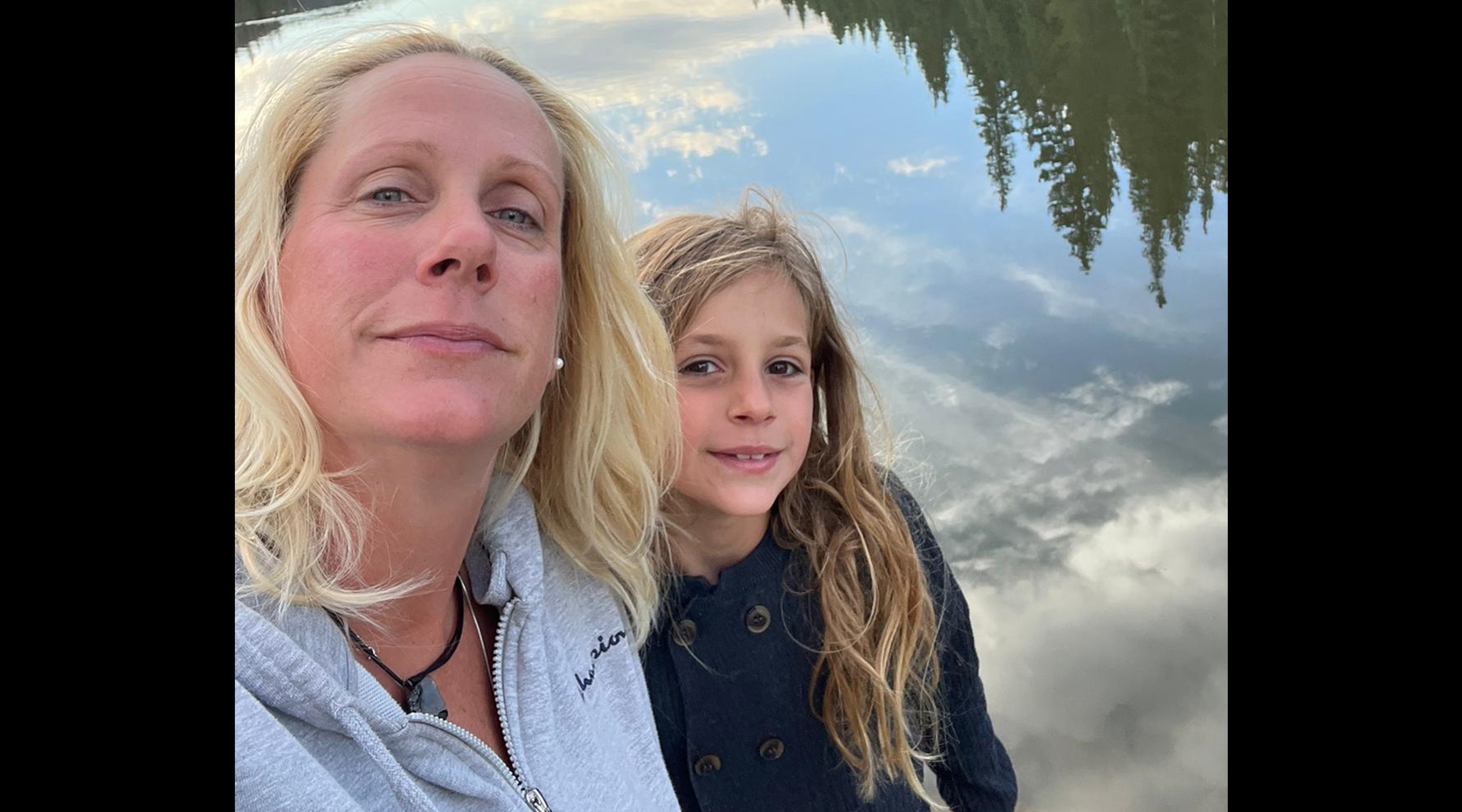
Veronica Elmendal with her youngest daughter, Lilach Zelig. (Courtesy of Elmendal)
Elmendal was able to secure a spouse visa through her husband, who is Israeli, and she said she and her four children — ages 7 to young adult — knew they were Jewish, no matter what the government said.
“My kids, they always feel Jewish anyways. They know they’re Jewish. And I’m Jewish, too. I don’t care what anybody says,” she said.
But after Hamas’ attack, she said, that didn’t feel like enough. “When Oct. 7 happened, all my kids, it was very important for them to be registered as Jewish,” Elmendal recalled.
Now, she is working with an Israeli rabbi on a conversion that will pass muster with the country’s religious authorities. She immersed in a mikvah and completed a conversion exam last month.
“They’re ready to take my kids to the army. And they’re ready to die for this country,” she said about her older children. “So this is why it’s very important for us to do the conversion.”
Hodge, too, recently completed her conversion. On Dec. 21, she immersed in a mikvah under the supervision of three rabbis, including Mlotek and Mintz, to finish the process. Now back in Kansas City, where she works in real estate and is preparing to marry her Israeli fiance, she says she is ready to contribute to the Jewish people — as a Jew.
“When the war happened, I felt that my connection to Judaism was growing stronger,” Hodge said. “I felt my need to be a Jewish mother was growing stronger, and my desire to be in Israel, to help and just to be unified with the people. So for me, this was the biggest push. I want to start my Jewish family. I want to bring good to the Jewish world right now. We just need that right now.”
JTA has documented Jewish history in real-time for over a century. Keep our journalism strong by joining us in supporting independent, award-winning reporting.
